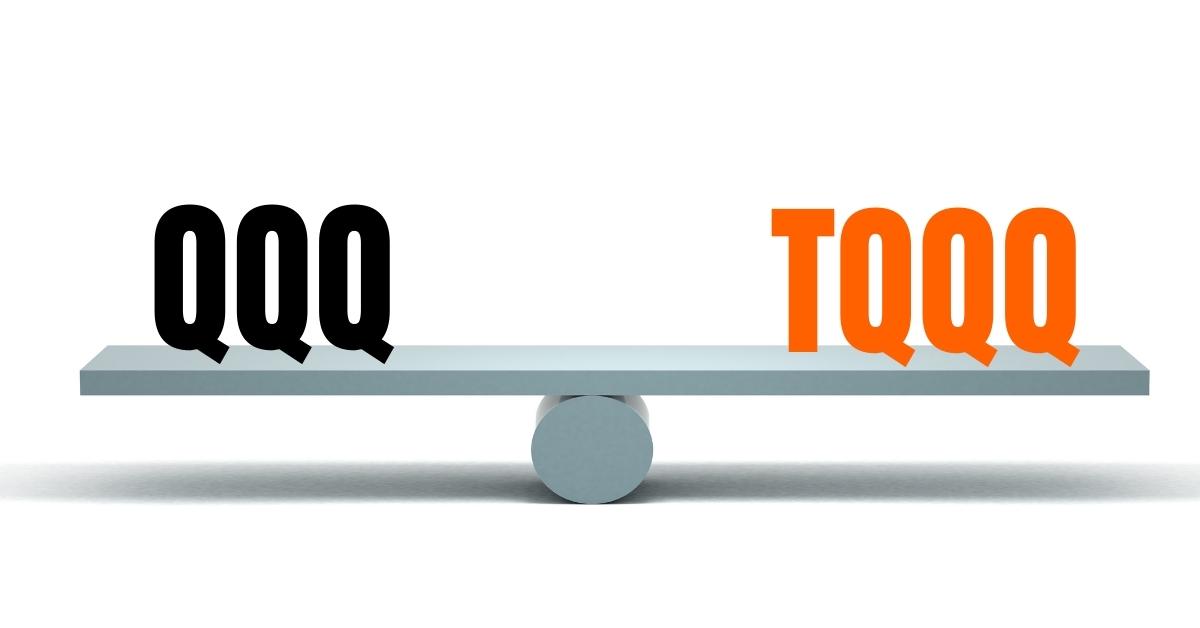If you decide to invest in ETFs, you need to know the differences in QQQ vs. TQQQ investments. The short answer is that QQQs and TQQQs are both based on the Nasdaq 100. However, TQQQs are leveraged investments, while QQQs are not.
Before you buy either of these funds, you need to know more. Keep reading to learn essential details before you choose which is suitable for you, QQQ vs. TQQQ.
What is a QQQ ETF?
QQQ follows the Nasdaq 100, which currently has 103 holdings. Several different investment management companies offer QQQ ETFs. All of these funds track the Nasdaq 100. However, the way that the companies manage the funds may differ.

What is a TQQQ ETF?
A TQQQ is a QQQ ETF that is leveraged three times. It uses derivative contracts to pay higher yields based on the performance of the NASDAQ-100. Leveraged ETFs like TQQQs reset daily, though. So, when the market is volatile, you can quickly lose gains. For that reason, TQQQs are usually short-term investments.
Are QQQ ETFs Leveraged?
QQQs are not leveraged ETFs. They pay dividends based on the performance of the assets it owns. These funds own the companies in the NASDAQ-100 index.
What is a Leveraged ETF?
A leveraged ETF uses debt and derivative contracts to increase the potential earnings of investors. A 3x ETF leverage at a 3:1 ratio. However, you can lose money at a higher percentage if the ETF’s index is not performing well.
QQQ or TQQQ: Which Is Better?
Which is better, QQQ vs. TQQQ depends on the investor and their strategy. A leveraged ETF is a better choice for people who want higher returns. If you are closer to your retirement date, you will want to make more sound investments.

QQQs are investments that you can buy and hold for a while. TQQQs are investments you want to hold for much shorter periods when the market is performing well and your risk tolerance is high.
Each person’s investment goals are different. If you are investing funds for retirement, buying and holding TQQQs is not a great idea, especially if you are close to having to take required mandatory distributions (RMDs).
Due to the complexity and risks involved with TQQQs, only seasoned inventors should try trading these ETFs. If you are looking for a longer-term investment with lower maintenance, a QQQ is likely a safer bet.
Taxes: QQQ vs. TQQQ
One of the critical differences between QQQ vs. TQQQ is how you pay taxes. You hold TQQQs for much less time. When you have an investment for less than a year, the government taxes the income you make as regular income. That means you could pay up to 35 percent in federal income tax, depending on your tax bracket.
How Can You Reduce Your Tax Burden: QQQ vs. TQQQ?
Knowing how to avoid paying high taxes on your investments can help you keep more of your money.

Plan Investments
If you know you will be in a higher tax bracket due to increased income, investing in a TQQQ might not make sense. The IRS taxes long-term ETF investments at a lower rate.
If you hold a fund for longer than 12 months, the tax rate is 15 percent. If you want to be taxed at this lower rate, you might want to invest in QQQ funds that you can hold longer without the risk of significant losses.
Work with an Experienced Financial Manager
Working with a financial manager with experience planning short and long-term investments can help you avoid hefty tax bills. It is a good idea to vet financial managers before you hire one.

Use a Tax Accountant
In addition to hiring an experienced financial manager, you should use a good tax accountant. A knowledgeable tax CPA will help you to plan for the taxes you will need to pay at the end of the year. However, you are always your best advocate when paying your taxes.

Understanding how the IRS taxes funds is vital because it will help you budget for the taxes you will need to pay. Furthermore, if you have higher returns than usual, it is a good idea to set aside the funds to pay your taxes quarterly.
Do You Understand the Differences Between QQQ vs. TQQQ?
When it comes to QQQ vs. TQQQ, the differences can affect your finances significantly. If you have high-risk tolerance and can keep a close eye on your ETF investments, a TQQQ might be a good option. Sticking to QQQs is likely the wiser choice if you are close to retirement age.
Regardless of your choice, you must be aware of the tax implications. If you have significant gains on your short-term fund investments, be sure you set aside enough to pay the income tax on the money you earn.
